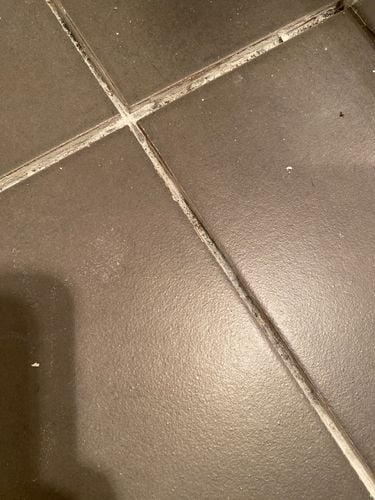
The grout in my shower was cracked so I’ve attempted to regrout. I removed the old grout, aiming to remove around half the depth. However, in some sections as I got deeper, the old grout started coming out like wet clay and came out right down to the screed (The shower floor consists of large tiles on top of screed, on top of the waterproofing).
Initially the exposed screed seemed very damp, like wet sand but since I’ve left it sitting for a while it seems to have dried out at least somewhat.
The problem that I have now is that when I apply the new grout, it doesn’t set. It seems to be okay when applied to the sections with a few mm of the old grout remaining, but where it’s applied on top of the screed, it’s stays wet. I even tried to apply a very thin layer of grout on the screed and that won’t dry out either.
I thought perhaps I could apply a hair dryer onto the areas of screed before the grout to give it longer to set before it sucks up more moisture from underneath. Another option maybe to apply grout sealer onto the exposed screed as a barrier before applying the new grout?
I’m in Canberra, so the weather might not be ideal. It’s quite cold in the bathroom. However, I did apply new grout to the shower walls and that set very quickly. Maybe I need to wait a few months for the screed to dry out completely?
Any ideas?